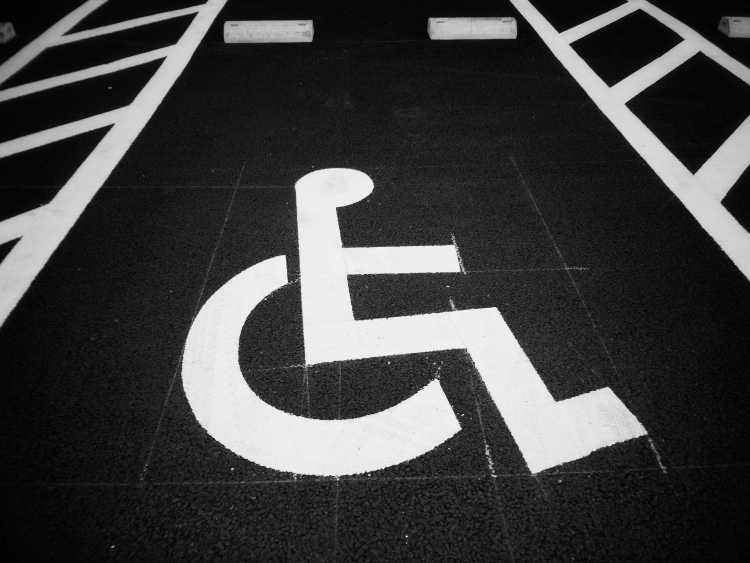How is AUP supporting its students with disabilities?

In its almost 60 years of existence, AUP has never had an accessibility representative. For students with disabilities, this can lead to an ableist environment and impair certain aspects of daily life for them.
“I’ve had to withdraw from a class before because the Passage Landrieu building is not wheelchair accessible, and I can’t go to the new Monttessuy building. It’s definitely isolating,” said John Velez, an AUP sophomore.
Image credit: Jacob ShropshireParis itself poses additional problems for students who need assistance with mobility.
“It's not an extremely accessible city just because of the fact that it was built during a time where accessibility and inclusion wasn't particularly a priority," said Brooke Berndston, an on-campus counselor at AUP. "People with disabilities were significantly marginalized. I think that they're hoping to increase accessibility for the Olympics and doing renovations on certain metro stations and such."
Disability, as defined by AUP , is “the limitation of activity or restriction in participation in the social environment suffered by a person due to a substantial, enduring or definitive alteration of one or several physical, sensorial, intellectual, cognitive or psychic functions, multiple disabilities or a disabling health disorder.”
Disability, and accessibility in turn, covers a broad range of both physical and mental health conditions, which are often not included in the social perception of “disabled people”.
“When we say disabled, you have lots of people who fit under the legal umbrella of the word, that may not even actually know that. You'll also have people that fit under that label that don't necessarily identify as disabled,” said Berndtson,
Image credit: Jacob ShropshireThough there are many places available on campus for students with disabilities to reach out to, such as the counselors like Brooke and the Student Development office, the necessity and benefit of an accessibility representative has been established with AUP administration.
"There are a lot of conversations that are happening at the higher level of management at AUP to hopefully bring in an accessibility specialist in the near future." said Rachel Webber, who provides student support at AUP’s academic resource center. Although right now we don't have that person, we know that it's something extremely important and something we need."
Following the COVID-19 pandemic and the strict measures that were made to prioritize health and well-being, such as masks and additional protocols, Webber is hopeful that additional consideration for those with disabilities continues.
“I think that a lot of our mindsets and our predispositions to disabilities have changed in the last two years. Before COVID, we used to have very rigid ideas of what a disability was and what that what the construct of disability is, and I think that now people, especially students, are so much more aware of what it can mean to be affected by invisible disability,” said Webber.
Elevated seating in Combes that is not accesibility friendly (Image credit: Jacob Shropshire)“COVID forced us all to be really adaptive very quickly and suddenly things that the disabled community has been asking for for a really long time became available,” added Berndtson.
The best actions students can take to be inclusive of their peers, staff and professors is being educated on accessibility and disability.
“I think education is one of the most sort of important aspects. Being exposed to the different ways of being human and the different kinds of challenges that can be posed, so I guess always being willing to engage with and challenge the idea of what is normal or normative,” said Berndston.
The Take Care club in is hosting a community forum on March 28 discussing disability visibility on campus, this event is meant to inform students but also create a community for disabled people on campus to come together and share their own experiences.
Image credit: Jacob ShropshireAUP is taking actions to provide resources and information for those with disabilities to access and take the next steps in receiving assistance. The AUP Accessibility and Accommodations website has recently been completely revamped to be more inclusive and to provide answers to questions students may have. It also provides definitions for what exactly disability is, in a legal and cultural context.
“I like to think about it as more, things are disabling and everyone can be exposed to particular circumstances in which they find disabling, and it's great that now people can go and say, oh, I do I qualify for assistance. People might not realize that episodic conditions or chronic illnesses or even mental health issues are covered and that they can receive assistance and support. We're hoping that it just increases accessibility and people are able to actually identify themselves or identify their needs,” said Berndtson.
To find more information on accessibility at AUP or to become better educated on disability, visit the new AUP Accessibility and Accommodations website.











